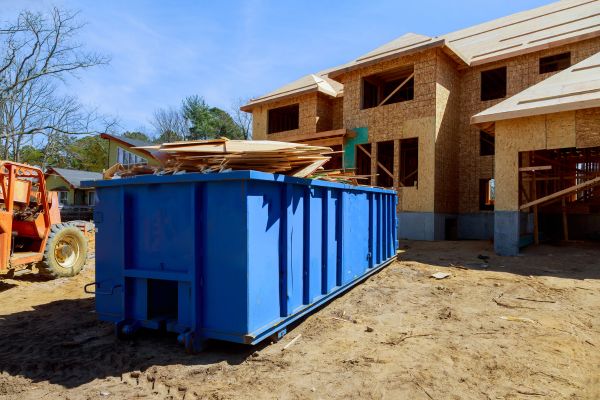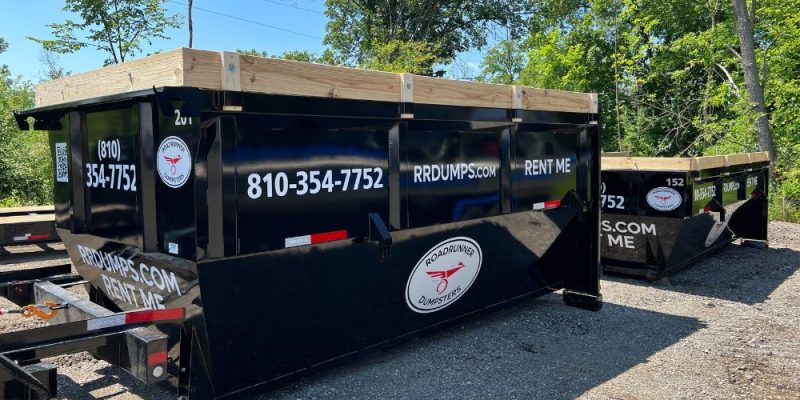Maintaining a clean job site is crucial for construction efficiency and safety. With the constant flow of materials and waste, managing debris effectively can be a daunting task. Construction debris dumpster solutions offer an organized approach to handle the mess, ensuring projects run smoothly and stay on schedule.
These dumpsters provide a practical and efficient way to collect and dispose of construction waste, from concrete to wood scraps. By choosing the right dumpster solution, construction teams can focus on building rather than worrying about clutter. A clean site not only enhances productivity but also minimizes hazards, protecting workers and the environment.

xr:d:DAFvei2hIwk:177,j:5704213069934155559,t:23092616
Incorporating dumpster solutions into construction planning helps streamline waste management processes. It allows for quick disposal, reduces downtime, and contributes to a more sustainable project. As the demand for eco-friendly and efficient construction practices grows, these solutions become an essential component of any successful job site.
Understanding Construction Debris Dumpster Solutions
Construction debris dumpster solutions offer a systematic approach to managing job site waste. These specific dumpsters optimize space, ensuring debris doesn’t hinder project efficiency.
What Are Construction Debris Dumpsters?
Construction debris dumpsters are specialized containers designed for construction waste. They come in various sizes to accommodate different project needs. Companies like BrackenBox provide these dumpsters for efficient disposal of materials like concrete, wood, and metals. Using these dumpsters ensures waste is segregated properly, aiding recycling efforts.
Importance of Keeping Job Sites Clean
Keeping job sites clean is crucial for safety and efficiency. A tidy site reduces the risk of accidents, enhancing worker safety. Cleanliness also ensures smooth workflow, as it minimizes obstructions and allows easy access to materials and equipment. Employing construction debris dumpsters helps maintain this cleanliness, supporting a productive and hazard-free environment.
Types of Construction Dumpsters
Selecting the right construction debris dumpster enhances job site efficiency. Different types serve distinct needs depending on project size and waste materials.
Roll-Off Dumpsters
Roll-off dumpsters are ideal for large-scale projects. They feature open tops and are delivered via truck, making them suitable for substantial debris loads like concrete and wood. Companies such as BrackenBox offer various sizes to accommodate different waste volumes. These dumpsters simplify debris management by allowing easy loading due to their low sides.
Front Load Dumpsters
Front load dumpsters are suited for smaller projects or sites with limited space. They have a compact design and are typically used for ongoing waste disposal. Equipped with lids, they help contain waste and control odors, enhancing job site cleanliness. Construction teams find front load dumpsters efficient for regular waste removal, contributing to better site maintenance.
Benefits of Using Dumpster Rentals
Construction debris dumpster rentals offer valuable solutions for maintaining clean and organized job sites. They provide several advantages that support effective construction waste management.
Cost-Effective Waste Management
Dumpster rentals reduce waste disposal costs by consolidating debris in one efficient system. They minimize the need for multiple trips to disposal facilities, decreasing labor and fuel expenses. With companies like BrackenBox offering various sizes, projects of any scale can find a suitable and economical dumpster solution.
Enhanced Safety and Efficiency
Keeping debris contained enhances job site safety by reducing trip hazards and clutter. Efficient debris management allows workers to focus on tasks without navigating through disorder. This streamlined environment increases productivity while maintaining adherence to safety regulations, ultimately achieving both compliance and operational efficiency.
Choosing the Right Dumpster Size
Selecting an appropriate dumpster size ensures effective management of construction waste. Matching the dumpster to the project scope optimizes site efficiency.
Factors to Consider
Project Scale, an important factor, helps determine the volume of waste. Large construction sites typically generate more debris, requiring bigger dumpsters.
Type of Debris impacts the size needed. Heavy materials like concrete need larger containers, while lighter waste may fit into smaller options.
Space Availability limits dumpster placement. When space is constrained, compact dumpsters or more frequent pickups may be necessary.
Budget Constraints affect size choice as larger dumpsters often cost more. Aligning the size with the budget ensures cost-effectiveness.
Common Dumpster Sizes for Construction Projects
10-Yard Dumpsters are suitable for small renovation projects or single-room updates. They handle waste like drywall and tile.
20-Yard Dumpsters fit medium-sized remodels, managing roof shingles, wood, and more substantial debris efficiently.
30-Yard Dumpsters accommodate large construction projects such as new home builds. They hold bulkier materials like bricks and metals.
40-Yard Dumpsters are optimal for major commercial sites and large demolition tasks. They support vast amounts of mixed heavy debris.
Choosing the right size, considering factors and common sizes, aligns waste management solutions with project requirements and site limitations.
Best Practices for Using Dumpsters on Job Sites
Efficient use of construction debris dumpsters can enhance job site cleanliness and safety. By following best practices, teams can optimize waste management and maintain a tidy environment.
Proper Loading Techniques
Distributing weight evenly across the dumpster’s surface prevents tipping and ensures safety during transport. Overfilling should be avoided to comply with disposal regulations and facilitate secure transport. Sharp or hazardous materials should be covered or appropriately contained to prevent injuries and manage debris safely on site.
Compliance with Local Regulations
Adhering to local waste management regulations supports environmental sustainability and avoids legal penalties. Understanding zoning laws concerning dumpster placement and usage ensures that projects remain compliant. For example, permits may be necessary for dumpster placement on public property, and failure to secure these could result in fines. BrackenBox and similar companies provide guidance on regulation compliance to ensure smooth project execution.
Leading Providers of Dumpster Solutions
Identifying top providers significantly impacts the effectiveness of waste management at job sites. Reliable companies offer essential services for handling construction debris efficiently.
Criteria for Selecting a Service Provider
Examining reputation helps in selecting the right dumpster service. Established providers often demonstrate consistent quality and positive customer feedback. Evaluating service coverage ensures that the provider caters to the job site’s location, crucial for seamless waste management. Assessing available dumpster sizes is important for matching project needs. Service flexibility, such as extended rental periods and quick delivery options, supports various project timelines. Reviewing pricing structures allows determination of cost-effectiveness, enabling an efficient utilization of construction budgets.
Recommended Companies for Construction Dumpster Rentals
Several companies deliver excellent construction debris dumpster services. BrackenBox offers a wide range of dumpster sizes for diverse project needs and stands out with eco-friendly disposal practices. Waste Management provides comprehensive rental options, available nationwide, with flexible scheduling and support for sustainable waste solutions. Republic Services caters to both small and large projects, emphasizing reliable and timely pickups. These recommended companies are trusted choices for maintaining clean job sites.














Comments